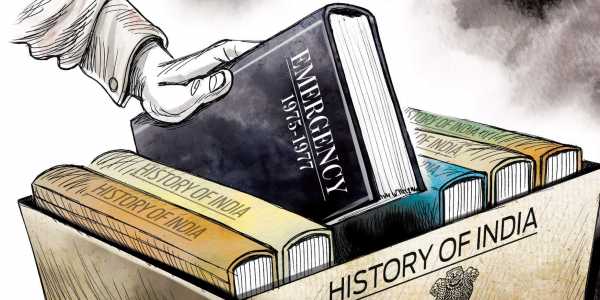
M Venkaiah Naidu, Former Vice President of India
For 21 months, Indian citizens were denied fundamental rights. It is too devastating an experience to be forgotten
In the famous ADM, Jabalpur vs Shiv Kant Shukla Case (known as the Habeas Corpus case) in August 1976, the then Attorney General Niren De told the Supreme Court that there could be no legal remedy if a citizen was shot dead by a cop out of personal enmity. He was obviously conveying the view of the then central government to the apex court. Everyone in the court was stunned. Only Justice H R Khanna dissented while the other four learned judges on the bench sat tongue-tied. The government’s view prevailed. Those were the dark days of Emergency.
For defending the fundamental rights of the citizens granted by the Constitution, Justice Khanna was superseded and the pliant Justice M H Beg became the Chief Justice of India. The apex court sank to its lowest during those days.
Media, the fourth pillar of democracy, missed the historic opportunity of standing by the citizens. The media submitted itself to the authoritarian dictates of the government of the day. Only a few like Ramnath Goenka’s Indian Express, The Statesman and Mainstream were among the few exceptions. L K Advani captured it all effectively saying, “The media crawled when they were only asked to bend.”
The Constitution of India, the law of the land, was amended preventing the courts from scrutinising any such amendments. In effect, the government could do anything with the sacred Constitution and with the lives and liberties of the people. All this under Emergency and to prop up an authoritarian government which was at the receiving end of the rage of the citizens against spiralling corruption, other misdeeds and failings.
If a cop had the power of shooting a citizen to death out of personal enmity, if the apex court had no qualms in accepting that view, if the media which was supposed to be the voice of the people submits itself to censorship, if the citizens were denied the fundamental rights of Right to Life and Liberty and if the Constitution of India could be torn apart at the will of the rulers, and if all this could happen in the name of ‘Emergency’, there are serious lessons to be learnt from those dark days.
Human beings do not live by bread alone. This was what the poor and illiterate Indians stated by overwhelmingly voting against the perpetrators of Emergency in the 1977 general elections. The wrongdoing of the imposition of Emergency on 25 June 1975 had to be undone on 21 March 1977; the people gave their verdict on the move a few months later with the power of the ballot. Those 21 months were the real dark days in free India. It is too devastating an experience to be forgotten. We need to keep recalling those harrowing experiences from time to time. Because we don’t live by bread alone. We are entitled to certain freedoms. Life without such freedoms is life without spice.
I had gone through those harrowing experiences during Emergency. After assisting senior leaders by going underground for over two months while being a university student, I was picked up and put behind bars for over 17 months. That proved to be the turning point of my life. Interactions with fellow prison inmates and senior leaders gave me a clear perspective of the people, the power, the politics and the country. And most importantly, it strengthened my resolve to defend democracy and respect the will and the right of the citizens with respect to basic freedom.
People born after 1977 constitute the majority of our population today and the country belongs to them. They need to know our nation’s history; particularly, the causes and consequences of Emergency.
There was no justification in 1975 to take away the fundamental rights of the citizens. But one flimsy reason was shown in the form of internal disturbance threatening the security of the country. The ‘disturbance’ was that the people were mobilising against corruption; the demand for New India was finding a chorus across the country. To add to it, the Allahabad High Court declared the then prime minister’s election to the Lok Sabha null and void. How dare a judge say so? So, the answer was to undo the Constitution that provided a framework to defend and uphold the rights of the citizens. It was a subversion of the highest order that plunged the country into darkness.
During those dark days, the country was turned into a large prison. Every Opposition leader was woken up from sleep and taken to the nearest jail forcibly. Jai Prakash Narayan, Atal Bihari Vajpayee, Lal Krishna Advani, George Fernandes, Charan Singh, Morarji Desai, Nanaji Deshmukh, Madhu Dandavate, Ramakrishna Hegde, Sikander Bakht, H D Deve Gowda, Arun Jaitley, Ravi Shankar Prasad, Prakash Javadekar, Ram Vilas Paswan, Dr Subramanian Swamy, Lalu Prasad Yadav and Nitish Kumar were among those who were found to be a threat to the security of the country and were imprisoned. More than three lakh people, including the then RSS Chief Balasaheb Deoras, were jailed. Prime Minister Narendra Modi went underground to mobilise support against Emergency.
National democratic conscience was shaken during the dark days of Emergency. The country resolved never to let it happen again. This resolve holds if only the nation reminds itself of those dark lessons from time to time. Particularly, Young India needs to know and learn from those dark pages of the history of Independent India.
“When I despair, I remember that all through history the way of truth and love has always won. There have been tyrants and murderers and for a time they seem invincible, but in the end, they always fall … think of it, always,” observed Mahatma Gandhi. Let our dark memories guide us towards the light as New India seeks its right orbit.
(This article was first published on Jun 25, 2018)














